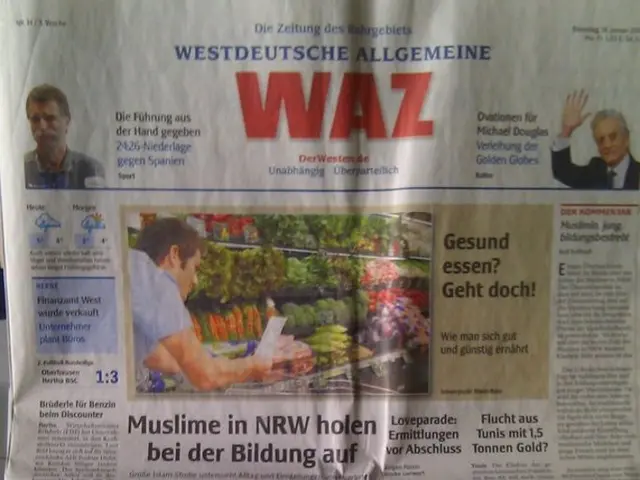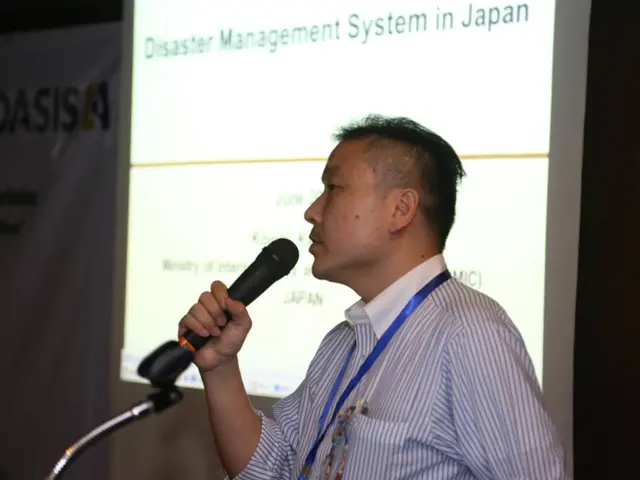Prophesying cattle augur prosperous trade period
Optimism Amid Trade Tensions: The Royal Ploughing Ceremony in Thailand
In the face of impending 36% tariffs from the US, threatening export markets, a glimmer of hope appeared in the form of the ancient Royal Ploughing Ceremony, predicting flourishing international trade for Thailand – a country where the US market accounts for over 18% of total exports.
Held last Friday at Sanam Luang, this centuries-old tradition saw His Majesty the King and Her Majesty the Queen presiding over the event. The day began with Buddhist rites at the Temple of the Emerald Buddha and continued with Brahmin rituals at Sanam Luang.
The ceremony's highlight came as sacred oxen chose their food items, a traditional form of divination. Their preference for liquor this year implies robust trade and improved transportation, promising great things for Thailand's economy.
Besides symbolizing international trade, the oxen's decisions also signaled sufficient rainfall and ample harvests throughout the year.
Originating in Thailand's Sukhothai era, the Royal Ploughing Ceremony, shared by various Southeast Asian rice-growing nations, was initially performed by royals. However, today, a senior official leads the ritual, fulfilling its role as a national agricultural forecast. Despite being discontinued after the 1932 political shift, the ceremony was revived during King Rama IX's reign to preserve tradition and emphasize agriculture's significance. It is now held annually in May and aired nationwide.
Though the oxen's predictions remain uncertain, they offer a renewed sense of optimism for a nation grappling with economic challenges.
While enriching the base article, it is essential to acknowledge the ceremony's cultural and agricultural importance.- Agricultural Prosperity: The Royal Ploughing Ceremony signifies the start of the rainy season, symbolizing the planting of rice seedlings and offering good omens for an abundant harvest.- Cultural Heritage: The ceremony dignifies farmers, who are the cornerstone of Thai society, by blending tradition, religion, and royal patronage, representing unity and prosperity for the Thai people.
In addition to its cultural and agricultural significance, the Royal Ploughing Ceremony also has a profound impact on international trade and the Thai economy:- Symbolic Predictions: The oxen's food choices, like liquor, suggest vibrant trade and improved transportation, while grains indicate prosperous harvests.- Economic Prosperity: The ceremony underscores the importance of agriculture in Thailand's economy, emphasizing the role of the monarchy in preserving this cultural and economic heritage.- Diplomatic Significance: The presence of diplomatic dignitaries from around the world increases the ceremony's diplomatic weight, showcasing Thailand's commitment to international relations and regional trade.
- The optimism in the face of trade tensions for Thailand's industry, particularly exports, was boosted by the ceremonial choice of liquor by the sacred oxen at the Royal Ploughing Ceremony.
- The Thai finance sector might benefit from the economic prosperity signaled by the Royal Ploughing Ceremony, as it could potentially encourage increased business activities due to the promised abundant harvests and robust trade.
- The Royal Ploughing Ceremony, celebrated annually in May, serves as a national forecast for agriculture and signifies the start of the rainy season, which also signifies improving transportation and trade conditions.
- The Royal Ploughing Ceremony extends its impact beyond cultural and agricultural significance, as it also functions as a diplomatic platform, attracting dignitaries from various regions, thereby enhancing Thailand's standing in international relations and trade.






